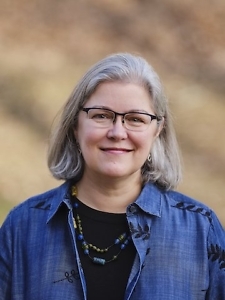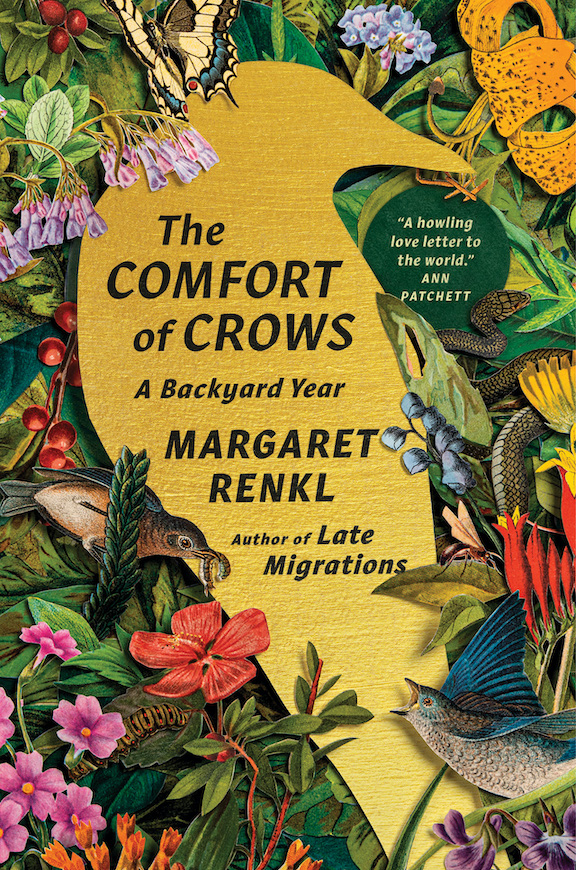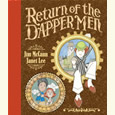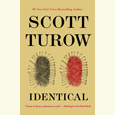To Justify the Ways of God to Man, 21st-Century Style
William Paul Young discusses the phenomenal success of his bestseller, The Shack
In 2005, William Paul Young was living in a tiny rented house with his wife and six children and working as a “general manager, janitor and inside sales guy” for a friend’s small business. The son of missionaries, Young spent his early childhood among the Dani, a tribe in Netherlands New Guinea (now Papua, Indonesia), and followed an equally unusual spiritual journey as an adult. He wrote the first draft of The Shack at the urging of his wife, Kim, who wanted their children to know more about the faith of their father, who is seminary-trained but does not belong to a formal religion. The novel tells the story of Mackenzie Philips, a man who falls into despair after his young daughter disappears, only to meet God himself—or herself, actually—in the shack where the child was murdered. During the weekend they spend together there, God (embodied by a black woman who calls herself “Papa”) explains the nature of both love and evil.
Young sent the manuscript cold to Wayne Jacobsen, author of So You Don’t Want to Go to Church Any More, who, with former minister Brad Cummings, volunteered to help Young polish it for publication. Despite its overtly Christian message, the theology of The Shack is at odds with some mainstream branches of Christianity. In 2007, after established publishers, religious and secular alike, wouldn’t touch it, Jacobsen and Cummings formed their own publishing company, Windblown Media, to print and market the book. A year later, The Shack had become a word-of-mouth success, selling over a million copies on a $200 marketing budget, and Hachette Book Group signed on as co-publisher. With the marketing arm of a major publishing house behind it, The Shack has become a mega-bestseller, with over ten million copies in print. On The New York Times bestseller list for seventy-six consecutive weeks—forty-nine of them in the number-one slot—it has now been translated into thirty-four languages, selling more than a million copies in Brazil alone.
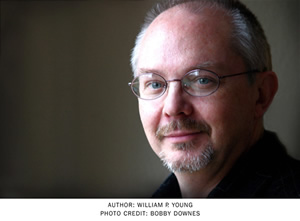 Young recently answered a few questions from Chapter 16 in advance of his Nashville appearance. He will discuss and take questions about The Shack on November 14 at 7:30 p.m. in the War Memorial Auditorium. Tickets are available through the Tennessee Performing Arts Center.
Young recently answered a few questions from Chapter 16 in advance of his Nashville appearance. He will discuss and take questions about The Shack on November 14 at 7:30 p.m. in the War Memorial Auditorium. Tickets are available through the Tennessee Performing Arts Center.
Chapter 16: In many ways, this book is like an ancient fable or even a parable—a story designed to teach a lesson that guides human behavior. As with other teaching stories, its message is very straightforward. It is, nevertheless, a novel, which means that readers may find meanings in it that surprise or even dismay you. Have you encountered interpretations of your book that you didn’t anticipate as you were writing it?
Young: Actually, it is one of my favorite responses, [when] someone has something that speaks to them that I never intended. For example, I wrote the section on forgiveness from my point of view, the victim Mackenzie. It had not crossed my mind that this story would end up in prisons, and the perpetrators would be reading this section from their point of view, listening as Papa communicates to Mack that He still loves and is working to redeem the ones who have caused so much of his pain.
Chapter 16: The path this book has taken—from self-published novel to bestselling cultural phenomenon—is the ultimate rags-to-riches story, one every first-time writer secretly dreams of. How has your life changed as a result?
Young: Let’s be clear: I never dreamed of this. I was simply writing a story for my six children. Thankfully, the things that matter most to me were in place before I wrote the book, so nothing that truly matters has changed. But many day-to-day elements have. I no longer work three jobs, although it seems I am busier than ever. Our family has started a foundation to support initiatives that we have a heart for, and I have a freedom to speak and travel that I never imagined. I am simply grateful to be part of this unexpected grace.
Chapter 16: Your first attempts to find a publisher were unsuccessful again and again. It’s easy to see why the secular media might be reluctant to accept a book with such an unapologetically Christian message, but why were religious publishers so skeptical?
Young: The religious community truly did not have a niche for this story, and they communicated that it was “too edgy.” One of the publishers told us that there has been an unwritten rule in publishing that goes like this: “If someone else is doing it, we can’t do it, but if no one else is doing it … we can’t do it.” No one really saw this phenomenon coming, including me. Just to add a thought: the publishing sector has responded very well and with strong support for The Shack, and changes are happening that should benefit us all.
Chapter 16: What’s next for you as a writer? Are you working on another book?
Young: Yes, I am working on an autobiographical narrative as well as another [work of] fiction. As for me personally, I continue to learn more about living inside the grace of just one day. Every breath is grace.
